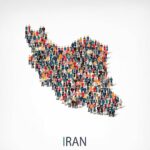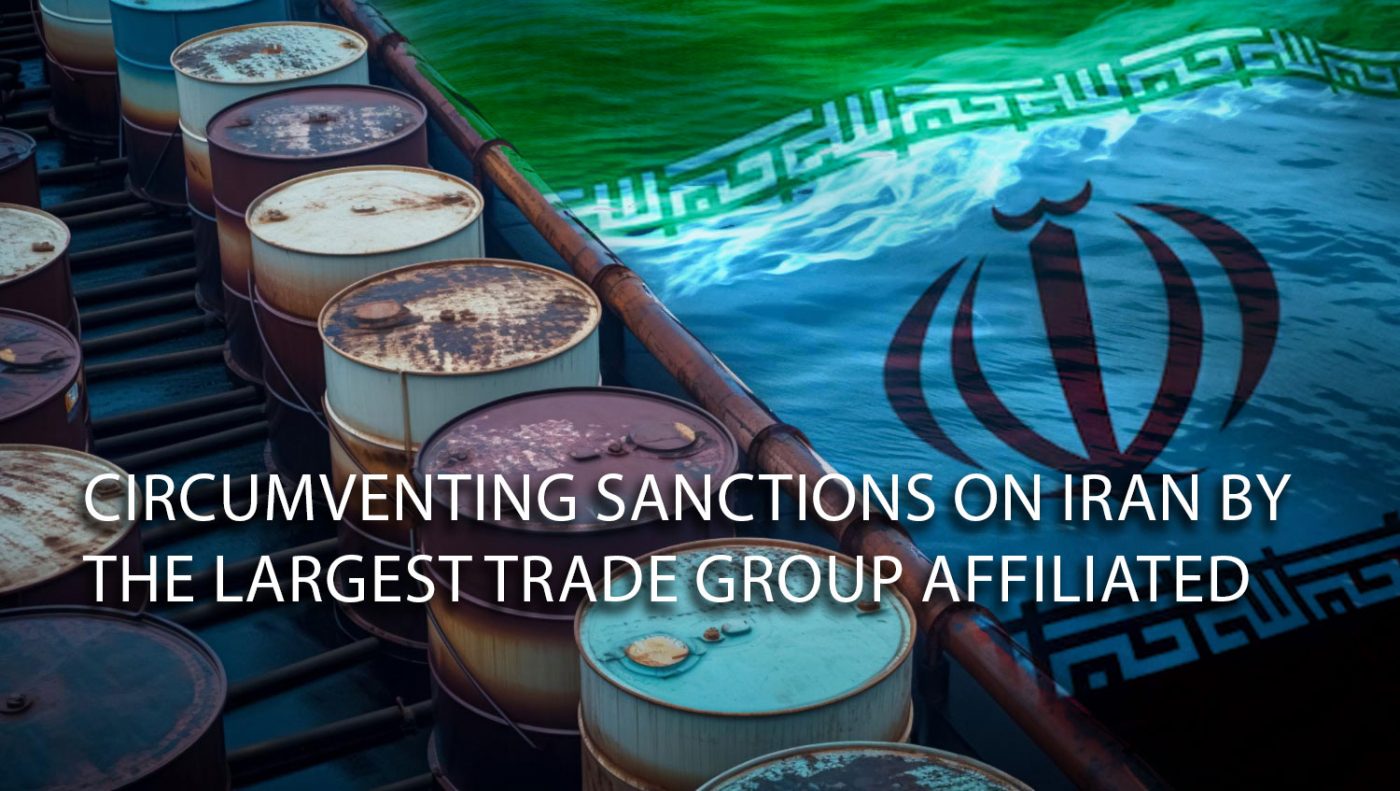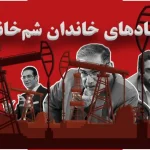In an era of rapidly evolving geopolitics and socio-economic landscapes, the intricate dance between international sanctions and the resilient networks operating within countries like Iran comes into sharp focus. Leveraging sophisticated business models and capitalizing on grey zones in international regulations, these networks challenge the very essence of global diplomatic strategies. This article delves into how, amidst stringent international sanctions, certain groups within the Islamic Republic of Iran not only sustain but seemingly thrive, raising questions about the genuine effectiveness and intent behind these global directives.
The leadership of the largest trade group serving the Islamic Republic of Iran in circumventing sanctions is undertaken by the children of Ali Shamkhani, the former Secretary of the National Security Council of Iran. This trade group, by establishing a network of shell companies in various countries such as; the USA, the UK, and some European countries, is responsible for transporting Iran’s petrochemical and oil products.
Mohammad Hossein Shamkhani is one of Ali Shamkhani’s children and his eldest son. Hossein is the most controversial member of the Shamkhani family. Numerous controversies surrounding him and his economic corruption cases have been published in the media. Mehdi Nassiri, the former editor of the Kayhan newspaper and a conservative journalist, in his remarks attacking Ali Shamkhani, the former Secretary of the National Security Council, accused Hossein of stealing oil money.
There is also a prominent trace of Mohammad Hossein Shamkhani in various cases, including the detained ship “Admiral” (which after its detention news led to the dissolution of the Admiral company).In February 2022, the Indian Coast Guard reported the detention of a container ship named “Kabul” at the Kandla port on India’s western coast. Immediately after the news was released, it was revealed that the name of the company owning the detained ship was “Admiral”, which belongs to Mohammad Hossein Shamkhani.
The story of the seizure of the ship owned by the Admiral company is a key incident that exposed the Shamkhani family’s role in circumventing oil sanctions.
Another one of their companies, VENTURE, registered in Panama, was shut down in 2018. This company, which was registered by Mohammad Hossein Shamkhani, Naji Shamkhani, and another Indian individual in Panama, was responsible for transporting goods and shipments of Iran’s oil and petrochemicals. Due to the sanctions imposed during the Trump administration and the inclusion of Naji Shamkhani’s name in the sanctions list, they also closed this company
The Shamkhani trading group, along with most oil groups (with ties to the official power) of the Islamic Republic of Iran, consider Panama a safe haven. They utilize Panama’s secure facilities for actions such as registering maritime transportation companies and handling the financial transactions of sales revenues from Iran’s oil and petrochemical products. They also use flags from countries like Liberia, Panama, or the Marshall Islands for their ships in maritime ventures to circumvent the United States’ sanctions.
After the identities of the company’s founders were revealed, Mohammad Hossein Shamkhani changed his identity, acquiring a passport from the Dominican Republic under a different name. He continues his commercial activities, which serve the underground economy of the Islamic Republic of Iran.
However, most maritime transportation companies under the management of the children of the former Secretary of the National Security Council of the Islamic Republic of Iran are owned by Indian and Pakistani individuals to make the identification of these companies impossible.
One of the individuals involved with the Islamic Republic’s trade network is Hossein Qorbani Zahed, who recently registered a company named GOLDEN NEST GROUP LTD in England under the nationality of the Dominican Republic. Most traders who work to circumvent sanctions for the Islamic Republic of Iran obtain the nationality of other countries under different names to easily carry out their illicit economic activities covertly.
Another individual associated with this group, identified and sanctioned, is Salim Ahmad Saeed, an Iraqi-British merchant. The Wall Street Journal claims, according to informed individuals, that US authorities believe the man behind the oil blending operations, Salim Ahmad Saeed, is a British citizen of Iraqi origin. Several companies share their email addresses and company affiliations with him, including Iraqi Shipping Services and AISSOT Oil Trade FZE, commonly known as AISSOT.
Mr. Saeed, in emails to the Journal, denied ownership of AISSOT or any violation of U.S. sanctions against Iran by any of the companies under his ownership or control:
“I am the owner of Oil Icon and Rhine Shipping. I am not the owner of AISSOT. My companies have never shipped Iranian oil in violation of U.S. sanctions, and all my dealings with Iraq have been entirely legal.”
This network, led by Mohammad Hossein Shamkhani and Abolfazl Shamkhani, the children of the Secretary of the Supreme National Security Council, operates like a spider’s web. They have registered extensive dummy companies in various countries, including the United States, Germany, England, and other European nations, to circumvent the sanctions imposed on the Islamic Republic of Iran.
The countries of the United States, Germany, England, and some European nations have imposed sanctions to prevent the sale of oil and financial transactions of the Islamic Republic of Iran. However, how is it possible that individuals from this network can register companies in these very countries to neutralize these sanctions and engage in trade and money laundering for the Islamic Republic of Iran?
One of the issues raised is that, even though Ali Shamkhani, the Secretary of the Supreme National Security Council, is on the U.S. sanctions list, his children, who lead the largest trading-mafia group serving the Islamic Republic of Iran to circumvent these sanctions, have never been listed under these sanctions.
The West’s double standards suggest a potential covert agreement between the US and the Islamic Republic of Iran, exempting certain individuals from sanctions.
U.S. sanctions in past years have put severe economic pressure on the people of Iran, but the mafia-like economic groups of the Islamic Republic of Iran have greatly profited from these sanctions and have become stronger day by day.









